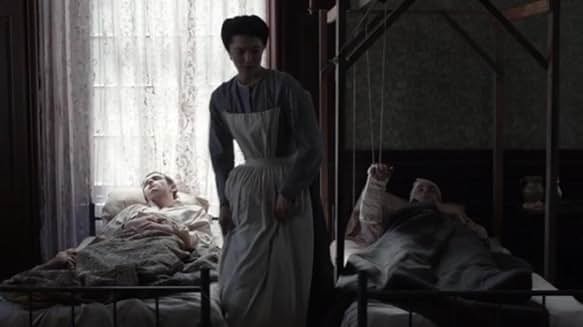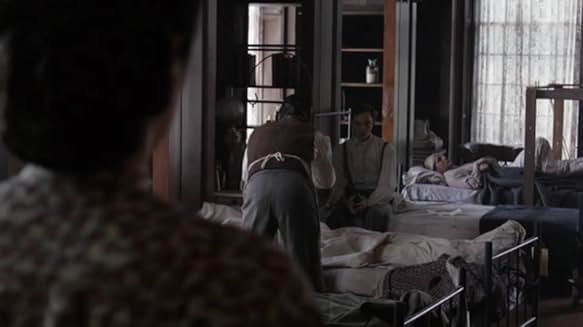The medical drama is one of the most popular and enduring genres in film and television. It blends the world of healthcare, hospitals, and doctors with the emotional depth of human stories. Medical dramas not only entertain audiences with high-stakes operations and life-or-death emergencies but also explore complex moral dilemmas, personal struggles, and the resilience of the human spirit.

What is a Medical Drama?
A medical drama is a dramatic genre centered on hospitals, doctors, nurses, patients, and the healthcare system. It often combines the tension of medical crises with the emotional and ethical challenges faced by both caregivers and patients. Unlike simple storytelling, medical dramas mix science, medicine, and human emotions to create gripping narratives.
Key Characteristics of Medical Dramas
- Hospital or Clinic Setting
Most stories take place in hospitals, ERs, or clinics, creating an environment full of urgency and emotional intensity. - Medical Cases
Each episode or story features patients with unique conditions, illnesses, or injuries that test doctors’ skills and empathy. - Ethical Dilemmas
Medical dramas often question the boundaries of science, morality, and humanity—such as issues of euthanasia, organ donation, or medical malpractice. - Personal Lives of Doctors and Nurses
These dramas balance professional life with the personal relationships, romance, and struggles of medical staff. - Life-and-Death Tension
Urgency and suspense keep viewers engaged, as lives often hang in the balance.
Why Audiences Love Medical Dramas
Medical dramas are among the most-watched genres because:
- They combine realistic science with emotional storytelling.
- They show human vulnerability, reminding us of the fragility of life.
- They highlight the heroic role of doctors and nurses, often seen as modern-day heroes.
- They provide both educational insights about medicine and emotional connection through patient stories.
Popular Subgenres of Medical Drama
- Hospital Dramas – Focus on the daily life of doctors and patients (Grey’s Anatomy, ER).
- Medical Mystery Dramas – Involve unusual cases and diagnostic puzzles (House, M.D.).
- Surgical Dramas – Center on high-stakes surgeries and life-saving operations (The Good Doctor).
- Psychological/Medical Dramas – Deal with mental health and therapy (In Treatment).
- Historical Medical Dramas – Explore medicine in past eras (The Knick).

Famous Examples of Medical Dramas
- TV Shows
- Grey’s Anatomy – A long-running series about surgeons, their personal lives, and intense cases.
- House, M.D. – A brilliant but troubled doctor solving rare medical mysteries.
- ER – One of the most iconic hospital dramas focusing on emergency medicine.
- The Good Doctor – A young surgeon with autism navigating challenges in medicine.
- Scrubs – A mix of humor and heart in the lives of young doctors.
- Movies
- Patch Adams (1998) – A doctor who uses humor as therapy.
- Awakenings (1990) – Based on a true story of patients waking from a decades-long coma.
- John Q (2002) – A father takes desperate measures to save his son’s life.
- Something the Lord Made (2004) – A story of groundbreaking heart surgery.
- Books
- The House of God by Samuel Shem – A satirical yet darkly realistic view of medical residency.
- Complications by Atul Gawande – A nonfiction account of the challenges of modern medicine.
- Cutting for Stone by Abraham Verghese – A sweeping medical drama spanning family, love, and surgery.
Social and Cultural Impact of Medical Dramas
Medical dramas are more than entertainment—they influence how society views healthcare:
- Raising Awareness: They bring attention to diseases, organ donation, and healthcare issues.
- Shaping Perception: They influence public trust in doctors and medical institutions.
- Humanizing Medicine: By showing doctors’ struggles, they make healthcare workers more relatable.
- Inspiring Careers: Many real-life doctors and nurses have said medical dramas inspired their careers.
Ethical Questions in Medical Drama
These dramas often deal with sensitive and thought-provoking issues:
- Should doctors always prioritize saving lives, even against a patient’s wishes?
- What happens when hospitals lack resources for all patients?
- How do doctors balance professional duty with personal life?
- Should experimental treatments be risked for desperate patients?

Conclusion
The medical drama is a genre that blends science, emotion, and humanity. It takes audiences inside the world of hospitals, surgeries, and emergencies while highlighting personal stories of love, loss, and resilience. From classics like ER to modern favorites like The Good Doctor, medical dramas continue to captivate global audiences because they remind us of life’s fragility and the courage of those who dedicate their lives to saving others.
In the end, medical dramas are not just about medicine—they are about people, choices, and the timeless struggle between life and death.